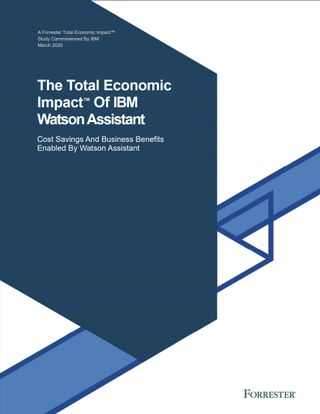Rogers Communication to invest C$10 billion in AI, oversight following outage
Canadian telco giant has promised internal transformation after a network-wide blackout caused major disruption in Canada earlier this month

Rogers Communications Inc. has announced a C$10 billion investment in improved infrastructure and AI research in moves to improve their telecoms network.
Earlier this month, Rogers experienced a serious network outage that affected many of its 10.6 million customers across Canada, restricting access to even emergency services. Beginning on July 8, the outage lasted approximately 19 hours.

The Total Economic Impact™ of IBM Watson Assistant
Cost savings and business benefits enabled by Watson Assistant
5G and other mobile internet, cell connectivity and even landline connections were all affected by the outage. Canadian police stated that some customers were even unable to access emergency services.
In a letter to the Canadian Radio-television and Telecommunications Commission (CRTC), Rogers reportedly said the problem was traced back to a network update, which had inadvertently deleted a routing filter and “allowed for all possible routes to the Internet to pass through the routers”.
Without the filter in place, internet traffic passed through routers at an unsustainable rate and quickly overwhelmed them.
In response to the outage, Rogers has made a series of commitments. Chief among them is a three-year, C$10 billion investment into more network testing and the use of artificial intelligence (AI) to improve network reliability.
The company has also announced an agreement with rival companies to support each other’s 911 calls in the event of network difficulties, as well as the separation of their wireless and internet services to limit the extent of future outages.
Get the ITPro. daily newsletter
Receive our latest news, industry updates, featured resources and more. Sign up today to receive our FREE report on AI cyber crime & security - newly updated for 2024.
In a blog post on the Rogers website, President and CEO Tony Staffieri apologised for the disruption and set out the aforementioned commitments in full. He stated that “emergency calls to 911 simply have to work,” and outlined where the C$10 billion will be invested.
“This includes more oversight, more testing and greater use of Artificial Intelligence to ensure we’re able to deliver the reliable service you deserve.
“Finally, we are partnering with leading technology firms to do a full review of our network to help us learn from the outage. We will share lessons with our industry for the benefit of every Canadian.”
AI could be used to help design more effective network infrastructure, or adaptively tune antennae to improve connectivity. Earlier this year, Qualcomm announced an AI-integrated 5G modem-RF, which it claims provides better average speeds.
Rogers separately warned in an update on Twitter that some customers had received scam text messages offering credits by way of apology for the outage. The company stated that while it will be applying credit to accounts, customers need take no action and should report any suspicious SMS.
Network outages such as this or the recent KDDI disruption in Japan can have major impacts on business operations and day-to-day life, especially if access to emergency services is affected. Nearly 60% of internet traffic is caused by mobile internet use, with an estimated 4.67 billion mobile internet users in 2021 highlighting how essential stable networks are to overall access to the internet.

Rory Bathgate is Features and Multimedia Editor at ITPro, overseeing all in-depth content and case studies. He can also be found co-hosting the ITPro Podcast with Jane McCallion, swapping a keyboard for a microphone to discuss the latest learnings with thought leaders from across the tech sector.
In his free time, Rory enjoys photography, video editing, and good science fiction. After graduating from the University of Kent with a BA in English and American Literature, Rory undertook an MA in Eighteenth-Century Studies at King’s College London. He joined ITPro in 2022 as a graduate, following four years in student journalism. You can contact Rory at rory.bathgate@futurenet.com or on LinkedIn.




